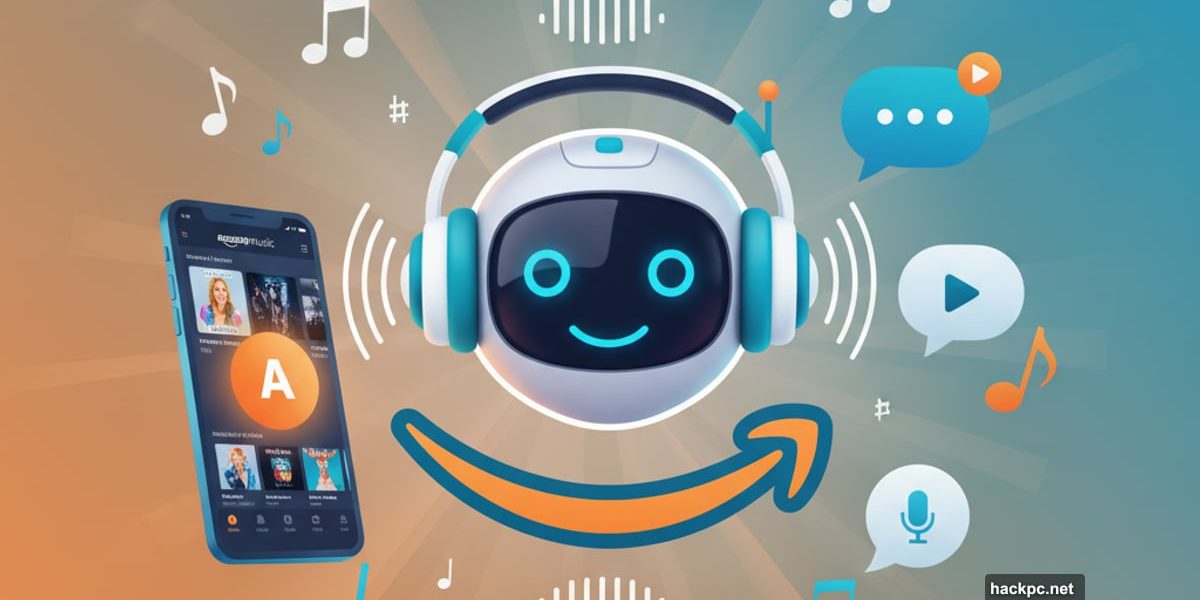
Amazon’s revamped Alexa assistant landed in a surprising new place. The Amazon Music app now includes Alexa+ for smarter music discovery.
Starting today, anyone with Alexa+ Early Access can tap into Amazon’s conversational AI directly from their phone. The feature promises to understand natural language requests and help you find that song stuck in your head. But does it actually work better than search?
Finding Music Gets More Conversational
Tap the “A” button in Amazon Music’s lower right corner. That’s your gateway to Alexa+.
The AI understands complex requests. You can ask for “that song from Breaking Bad with the guitar riff” instead of remembering exact titles. Or describe a mood, era, and vibe all at once.
Plus, Alexa+ handles follow-up questions naturally. Start with “play indie rock from the 90s” then refine with “actually, skip anything too mellow” without repeating yourself. It remembers context from earlier in the conversation.
That’s different from traditional search. Most music apps force you to start over with each new query. So this conversational approach could save time for anyone who knows what they want but can’t quite name it.
Playlist Creation Gets Smarter Too
Here’s where things get interesting. Alexa+ builds custom playlists from detailed prompts.
Try something like “high-energy running playlist from the 2000s, start with Lose Yourself by Eminem.” The AI assembles a sequence that matches your specific requirements. It considers tempo, era, artist, and song placement all in one request.
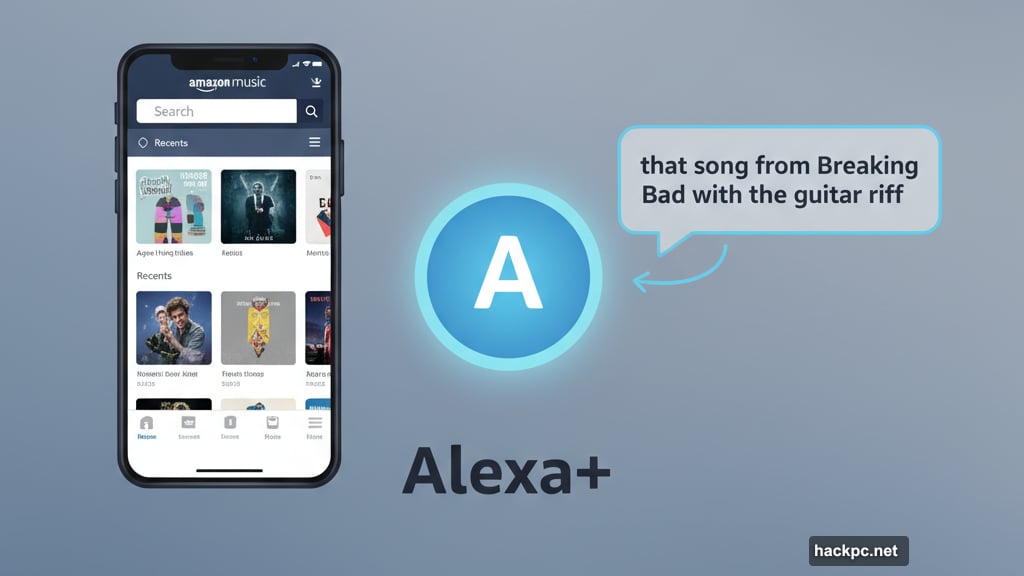
Or keep it simple. “Play something chill for a Sunday morning” works just as well. The AI interprets vague mood requests and picks tracks accordingly.
Traditional playlist tools require multiple steps. Pick a genre, filter by decade, adjust tempo settings, then manually choose opening tracks. Alexa+ collapses that workflow into a single sentence.
Music Trivia Lives in the App Now
Alexa+ doubles as a music encyclopedia. Ask about chart positions, lyric meanings, or tour dates.
“What inspired the lyrics to Bohemian Rhapsody?” The AI pulls context and background information. “Where did Thriller peak on the charts?” You get specific chart data.
This feature fills a gap. Most streaming apps focus on playback, not music history. So if you’re curious about the stories behind songs, you’d typically need to switch apps or search the web. Now that information lives inside Amazon Music.
Rolling Out Across Amazon’s Ecosystem
Amazon’s been quietly adding Alexa+ everywhere. Ring devices got it. Kindles too. The new Vega smart TV platform includes it.
The Echo Studio speaker showcases Alexa+’s conversational skills best. Reviews note the AI sounds more human and handles complex requests better than the original Alexa. But it still makes basic mistakes, like getting the day of the week wrong occasionally.
So the technology’s improving but not perfect. Expect some errors while Amazon continues training the AI.

Who Can Use It and What It Costs
Alexa+ Early Access works on iOS and Android right now. You need the latest Amazon Music app version.
Eventually, all Prime members get free access. Non-Prime members pay $20 monthly, which costs more than Prime itself at $15 monthly. That pricing feels odd for a feature that’s technically a bonus for Prime subscribers.
So if you already subscribe to Prime, you’re set. If you don’t, paying $20 just for Alexa+ in Amazon Music probably doesn’t make sense. Just get the full Prime membership instead.
The Real Question Nobody’s Asking
Voice assistants in music apps aren’t new. Siri handles Apple Music. Google Assistant works with YouTube Music. Spotify has its own voice commands.
What makes Alexa+ different is the conversational memory. Other assistants treat each request as isolated. Alexa+ maintains context across multiple exchanges.
But here’s what matters most. Does conversational AI actually improve music discovery, or is it just a fancier search bar? That depends on how you find music.
If you already know what you want, traditional search works fine. Type an artist name, done. But if you’re exploring or can’t quite articulate your mood, talking through options with an AI that remembers your preferences might genuinely help.
The technology’s still early. Amazon’s betting that conversational music discovery becomes the norm. Whether that actually happens depends on if people prefer talking to their apps or just typing what they need.
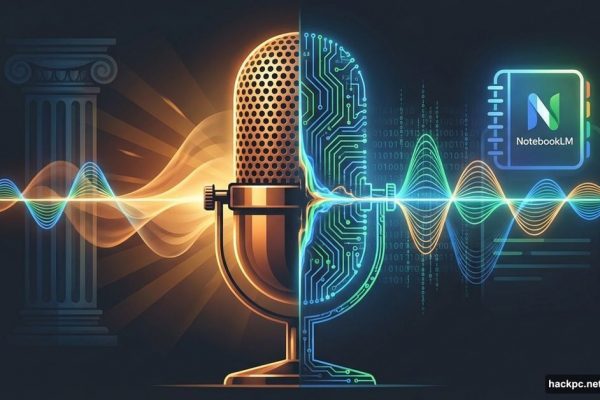
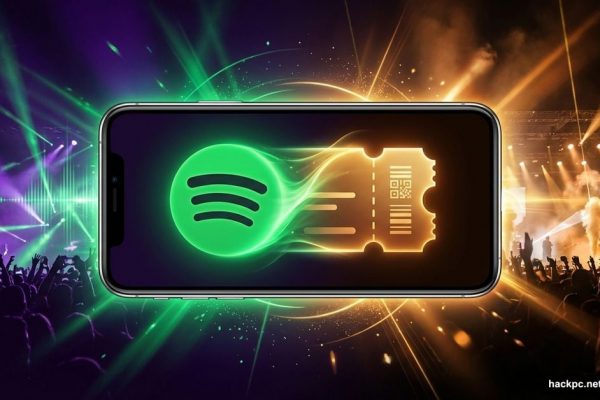
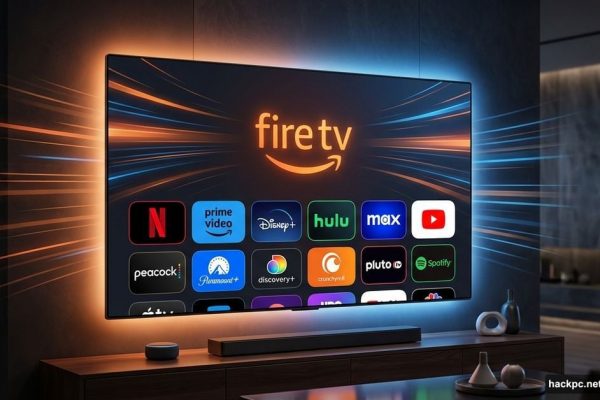
Comments (0)